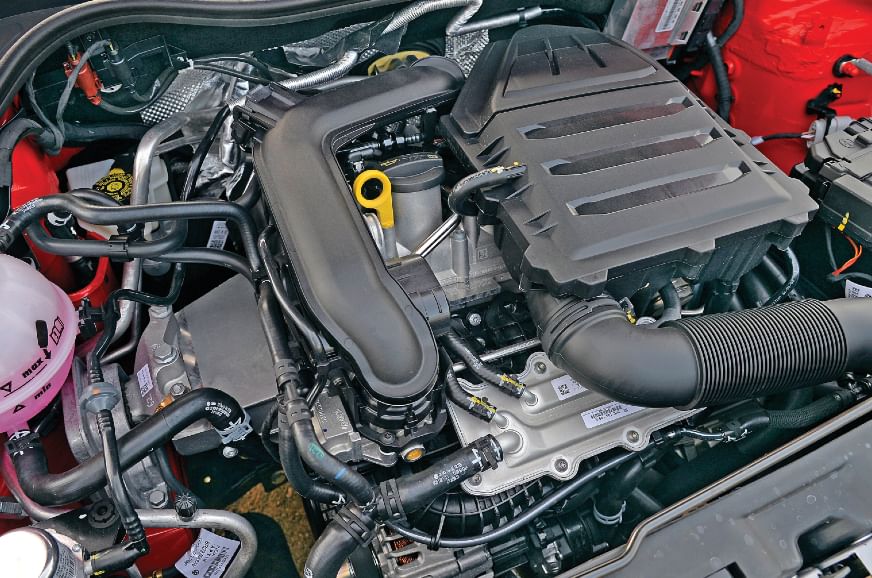Skoda Rapid 1.0 TSI review, road test
Now gets an internationally acclaimed turbo-petrol engine and a 6-speed manual.
Published on Jul 25, 2020 06:00:00 AM
1,84,514 Views
Codenamed EA211, this 999cc, threecylinder turbocharged petrol engine is an internationally acclaimed motor known for its healthy amount of performance. It gets direct injection, so it comes with a set of merits, wherein a precise amount of fuel is sprayed into the cylinder directly at pressures as high as 350 bar (very high for a petrol engine), enabling efficient combustion. What’s more is this motor leaves low amounts of residue like CO2 and NOx, making it comply with the most stringent global emission standards of today.
Shared with the Volkswagen Polo and Vento, this 1.0-litre TSI motor makes 110hp and 175Nm of torque; so the Rapid gains 5hp and 22Nm over the previous EA111 1.6-litre petrol engine, thanks to forced induction. The power and torque figures have been reworked for India, compared to the international version’s 115hp/200Nm. However, max torque is available between 1,750-4,000rpm, a much broader spread than the international Rapid’s 2,000-3,500rpm.

The nice and wide spread of torque is immediately noticeable, as well as the well-judged gear ratios that make it an effortless motor. There is some perceptible lag below 2,000rpm, but get past that and power flows in a strong yet linear manner. And those who enjoy driving will love the engine’s rev-happy character which eggs you to spin it closer to its 6,500rpm rev limiter without feeling strained.
Get caught off-boost and you will have to downshift to bypass the turbo lag and get moving again. Consider acceleration from 30-60kph in third or 50-80kph in fourth gear, simulating scenarios of closing a traffic gap or making a quick overtake, and the little TSI sprints in a respectable 5.35sec and 6.60sec, which is much quicker than the new-generation Honda City (6.43sec and 8.80sec) and the Maruti Ciaz (5.26sec and 7.60sec), both of which are powered by larger 1.5-litre petrol engines. On-tap responses, or that initial bit of response at lower RPMs of large displacement engines still remains unbeaten by this smaller capacity turbo unit, but get past that slight initial delay, and this force-fed motor comes into its own due to its torquier character.
Where this small-capacity engine really shines is in outright performance. Outrunning the new-gen Honda City by 1.6sec in the sprint to 160kph, and the TSI will even go on to max out at a top speed of 195kph, living up to its Rapid name.
This engine is largely refined, and it is only at idle that you feel mild vibrations as it rocks on its mounts. Sound insulation is terrific, and it masks speeds like a much more expensive car. It does get thrummy at higher revs – a typical three-cylinder characteristic – but it is never too loud or intrusive.
The 6-speed manual is light to use, although it can feel a bit notchy at times, and while the clutch is light, its travel is a bit long. So, overall, it isn’t as easy to drive as its Japanese or Korean rivals.
Skoda Cars
Related Images
Related Videos
Copyright (c) Autocar India. All rights reserved.


